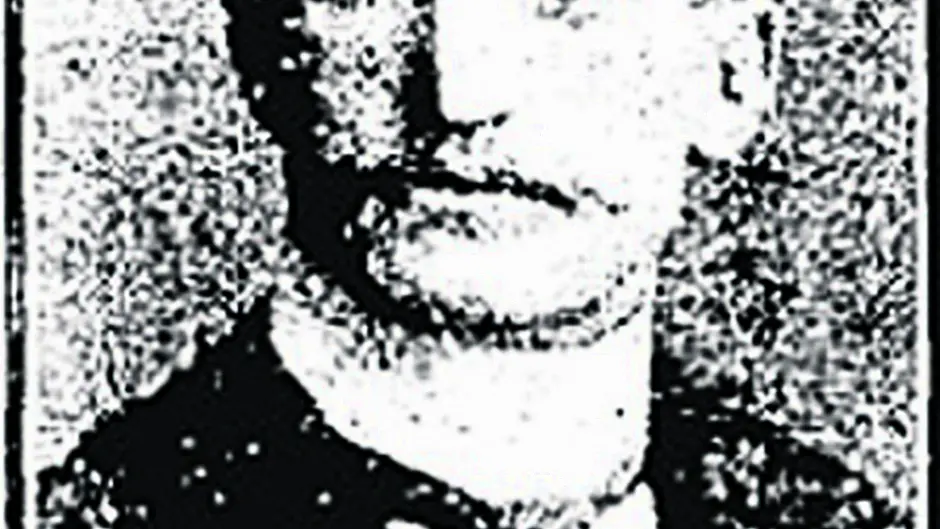Robert Hume recalls the life of RIC man Cornelius ‘Cornie’ Crean – a brother of the famous explorer Tom – who was killed, at the age of 49, in an ambush at Upton village in 1920
Robert Hume recalls the life of RIC man Cornelius ‘Cornie’ Crean – a brother of the famous explorer Tom – who was killed, at the age of 49, in an ambush at Upton village in 1920
WHILE Tom Crean has earned a reputation as an explorer who accompanied Captain Scott and Ernest Shackleton to the Antarctic, less is known about his older brother, Cornelius (Con), whose life ended tragically during the Irish War of Independence.
In 1919 the IRA began a series of attacks on police and soldiers working for the British.
As a result, dozens of terrified Royal Irish Constabulary officers resigned every week, many to be replaced by British volunteers – the ‘Black and Tans’.
But Con Crean was not one for resigning.
Born in 1871 at Annascaul, near Dingle, Co Kerry, Crean worked on the family farm before joining the RIC in 1892.
For some years he served in Belfast and Dublin, where he was picked for the police tug-of-war team.
Stationed at one point at Bandon, he was transferred to Cork city, where he lived at 27 King Street with his wife Annie (a publican), and only child, Willie, and played as a forward for the Constitution Rugby Football Club.
By March 1920, he had been promoted to sergeant, and was based at the barracks at Innishannon.
At about 2pm on Sunday April 25th, Sgt Crean and two constables, Patrick McGoldrick and William Power, left Innishannon to investigate an incident in Skevanish. Each was armed with a revolver.
As they returned to Innishannon, it became showery and wild.
At about 4.30pm they reached Upton, a remote village midway between Kinsale and Bandon, where only the occasional cyclist or motorist interrupted the quiet.
They continued along the shaded roadway towards Upton railway station. McColdrick was in the centre, slightly ahead of the other two. Crean was on his right, and Power on his left.
When the weather worsened they sheltered close to St Patrick’s Industrial School.
Constable McGoldrick was about to light his pipe when suddenly a volley of four shots rang out in quick succession. They came from behind the fence in a wood to their left.
McGoldrick fell instantly.
‘Oh God, oh God. Run, Power!’ shouted Crean. ‘Run for cover.’
They ran towards a bend in the road about a hundred yards away.
Three or four more shots were fired. Con ordered Power to ‘turn and attack’.
Before he could, a man rushed across the road, raised a shotgun to his shoulder and fired.
Crean was hit, and collapsed onto the road.
Constable Power escaped unscathed, and went over to help his comrades.
‘I picked up the sergeant and found his body trembling; his face was white and he was bleeding,’ he said.
He ran to the post office at Upton and wired Innishannon for assistance.
When he returned he discovered that both his colleagues were dead, and McGoldrick’s revolver taken.
Father O’Connor and Brother O’Reilly from the Industrial School had heard the shots and were on the scene.
The ambulance arrived from Bandon and the bodies were brought into Innishannon, and laid out.
A doctor’s examination revealed that four bullets had pierced Crean’s heart. Part of McGoldrick’s head had been blown away.
The bodies were taken to Cork Military Hospital.
Scores of military and police arrived from Bandon, and a thorough search was made of the surrounding area.
Reports spread that at least one bomb had been thrown.
But only three empty shotgun cartridges were ever found.
The perpetrators were believed to be members of the Third West Cork Brigade, led by Jim O’Mahony, who were lying in wait in the thick undergrowth for the patrol to return.
The news came as a terrible shock in Cork, where ‘Cornie’ Crean was a popular police officer, and a familiar figure on the rugby pitch.
An inquest brought in a verdict of ‘murder by person or persons unknown’.
Crean’s funeral took place on April 28th at Castlemartyr in East Cork, where the IRA had captured the barracks only two months earlier.
As well as his immediate family, the cortege included over 100 police, a detachment of the Belfast force present in Cork, and members of Con’s rugby club.
Some had read in The Cork Examiner how his wife and boy had accompanied Con to the railway station in Cork to see him off to Innishannon the evening before he died.
Alarmed by the recent shootings, Annie had, in vain, begged him to resign.








